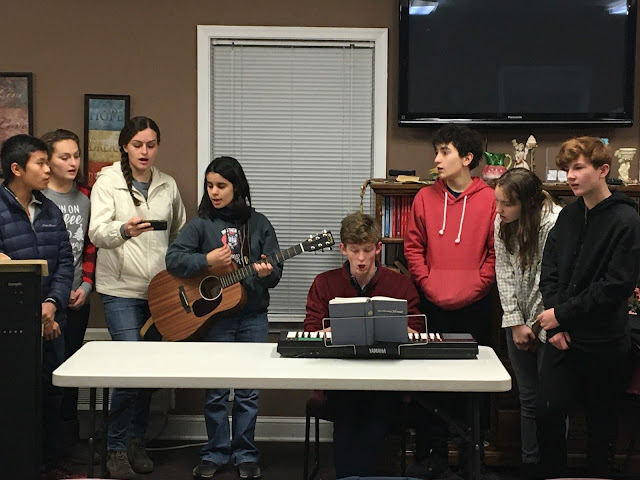Now when John had heard in the prison the works of Christ, he sent
two of his disciples, And said unto him, Art thou he that should come, or do we
look for another? (Matthew 11:2-3).
Given that John had previously declared Jesus to the Lamb of God
and the Son of God (cf. John 1:29, 34, 26), why is he now sending this question
to Jesus by his disciples?
Two responses have been given:
First, some have suggested that the question reflects weaknesses
and doubts in John himself.
John the Baptist was a great man, but he was still only a mere
man. The old adage goes, “The best of men are men at best.”
It raises the question of whether his being cast into prison had
been dispiriting to him. Maybe he had sunk into despair and gloom. He was
perhaps doubting his past experiences, the ministry he had performed, the
truths revealed to him.
Consider the later experience of Peter who would adamantly promise
never to forsake Christ, but then, when the rubber met the road, he denied
three times that he ever knew him (cf. Matthew 26:69-75).
The difficulties of our circumstances can indeed wear us down
spiritually. Spurgeon observed: “Dark thoughts may come to the bravest when
pent up in a narrow cell” (Matt, 131).
Second, others have suggested that John’s question was not for
himself, but for the benefit of his disciples.
According to this view, John wanted Christ himself to affirm his
identity as Messiah directly to his disciples. We know from the record of the
NT that many followers of John would eventually become followers of the Lord
Jesus, but this would require teaching and instruction. The proto-apostle
Andrew had been a disciple of John (John 1:37, 40). Other followers of John who
eventually turned to Jesus include Apollos (cf. Acts 18:24-28) and the twelve
disciples of Ephesus (Acts 19:1-7).
Can you imagine how encouraging this passage recorded by Matthew was
to those who had been disciples of John but then became disciples of the Lord Jesus?
Christ provided a definitive answer to John’s question: “Go and shew
John again those things which ye do hear and see” (Matthew 11:4). He opened blinded
eyes, made the lame walk, cleansed lepers, opened deaf ears, raised the dead,
and preached good news to the poor (v. 5). He is the Messiah, anticipated by
the prophets. “And blessed is he, whosoever shall not be offended in me” (v.
6).
Grace and peace, Pastor Jeff Riddle

No comments:
Post a Comment